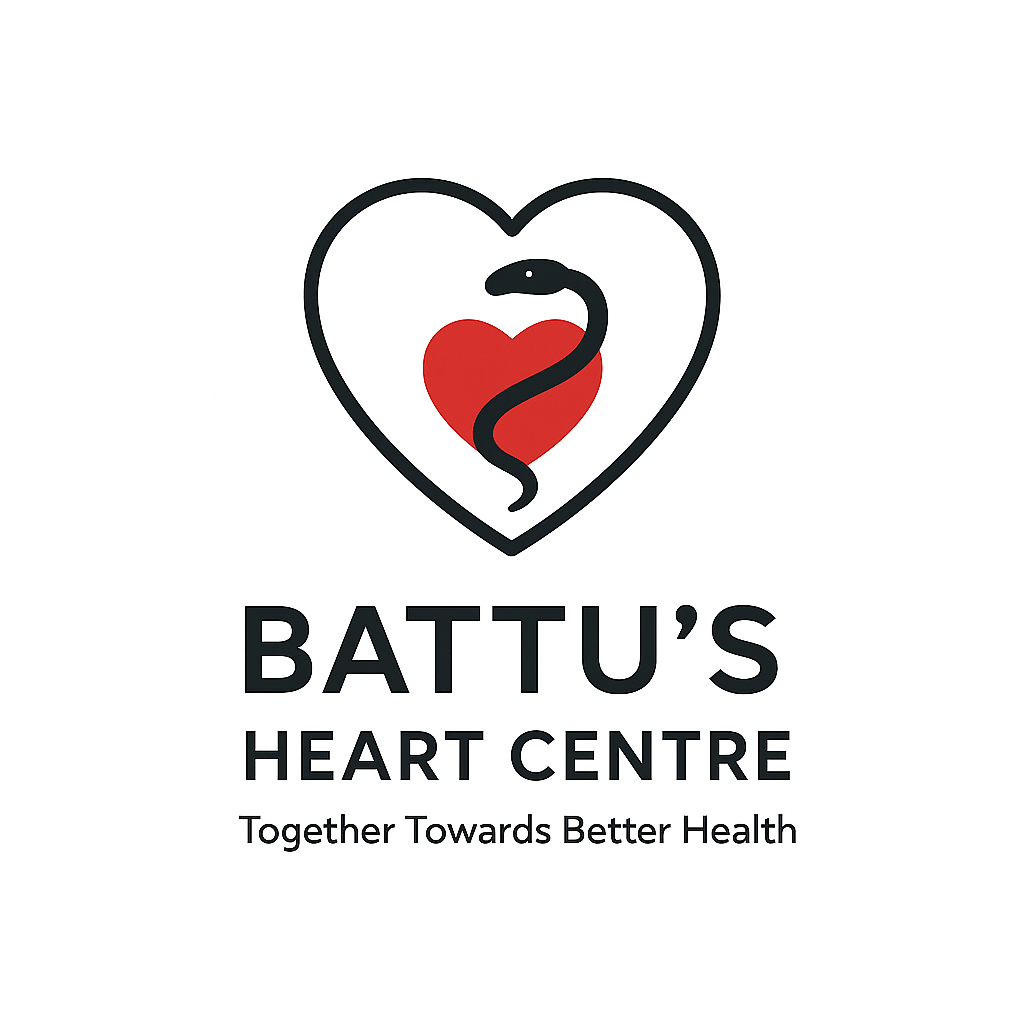stress has quietly become a part of everyday life. But what most people don’t realize is that stress management in heart disease is not just about staying calm—it’s about protecting your life. When you are under constant pressure, your body releases stress hormones like cortisol and adrenaline, which make your heart beat faster and your blood pressure rise. Over time, this constant strain can lead to high blood pressure, artery damage, and an increased risk of heart attack or stroke.When stress becomes chronic, it triggers inflammation inside the blood vessels, causes irregular heart rhythms, and increases cholesterol levels. Studies show that people who experience emotional stress are more likely to develop cardiovascular diseases such as coronary artery disease and angina. This is why doctors emphasise the importance of stress management for heart health as part of overall cardiac careThe good news is that the heart and mind are deeply connected—and managing stress can dramatically reduce heart risks. Simple lifestyle changes such as daily exercise, mindful breathing, yoga, and balanced nutrition can lower stress hormones and help your heart stay healthy. Meditation and positive thinking calm the nervous system, regulate heart rate, and improve blood circulation.

Recreation to Reduce Stress and Protect Heart Health
In the rush of daily life, many people forget that recreation is not a luxury — Stress management is very important in life.it’s a necessity for both mental and heart health. Engaging in enjoyable activities gives the mind a break from constant pressure and helps the body recover from the harmful effects of stress. Studies show that people who include recreational activities in their routine have lower blood pressure, better heart rate control, and a stronger emotional balance.When you take time to do things you love — such as walking in nature, gardening, painting, listening to music, or spending time with family — your brain releases endorphins, also known as “happy hormones.” These hormones naturally reduce the levels of cortisol and adrenaline, the key stress hormones that can strain the heart. As a result, recreation supports stress management in heart disease by calming the mind, improving blood flow, and lowering the risk of hypertension and coronary artery disease.Recreation also encourages a healthy lifestyle. Outdoor activities like cycling, swimming, yoga, or dancing not only lift your mood but also keep your body fit and your heart muscles active. Even simple habits like reading a good book, enjoying a hobby, or meeting friends can recharge your spirit and reduce emotional tension.

Remember, your heart responds to how you live and how you feel. A joyful mind keeps the heart young. By adding recreation to your daily routine, you are not just preventing heart disease — you are creating a life filled with happiness, balance, and vitality.
💞 Spending Time with Family and Friends for a Healthy Heart
In our fast-paced world, it’s easy to get caught up in work, deadlines, and digital distractions — but nothing heals the heart like spending time with family and friends. Emotional connections are one of the strongest shields against stress, anxiety, and loneliness. When you share laughter, love, and support with your loved ones, your body naturally produces oxytocin, often called the “love hormone,” which reduces stress levels and strengthens your heart health.Social bonding is a key element in stress management in heart disease. Research shows that people who maintain strong relationships are less likely to develop high blood pressure, depression, or cardiac complications. Meaningful conversations, shared meals, or simple moments of joy can reduce the release of stress hormones like cortisol and help the heart maintain a steady rhythm.When you’re surrounded by people who care, you feel emotionally supported, which improves mental well-being and helps in faster recovery for heart patients. Hospitals and cardiologists in India now recognize emotional wellness as an essential part of stress management for heart health. Many rehabilitation programs encourage patients to reconnect with family, share their feelings, and engage in group activities that promote positivity and calmness.

Spending time with loved ones doesn’t require grand plans. It could be enjoying a cup of tea with your parents, playing with your children, chatting with friends, or volunteering together for a cause. These simple acts create deep emotional satisfaction and reduce the harmful effects of chronic stress, a major trigger for heart disease.A happy heart is a healthy heart. When you laugh more, love more, and live with connection, you give your heart the peace it truly deserves. So, take a break from the chaos, spend time with the people who make you smile, and let your relationships become your heart’s natural therapy.
Importance of Sleep in Stress Management
Quality sleep plays a vital role in stress management in heart disease. When you sleep well, your body and mind relax, lowering stress hormones like cortisol and adrenaline that can strain your heart. Lack of quality sleep leads to increased stress levels, high blood pressure, and inflammation — major factors that can damage heart health.A proper sleep cycle of 7–8 hours each night helps restore the body’s natural rhythm, improves blood circulation, and supports mental wellness. Deep sleep allows the heart rate and blood pressure to drop, giving the cardiovascular system much-needed rest. Over time, consistent poor sleep can raise the risk of heart attack, stroke, and hypertension.

Practicing good sleep hygiene — such as going to bed early, avoiding screens before bedtime, and maintaining a calm environment — can help reduce stress and prevent heart disease. A healthy lifestyle that combines exercise, balanced diet, and regular sleep strengthens both emotional and physical health. In summary, sleep is a natural healer. It helps the body recover, controls stress levels, and protects the heart from unnecessary strain. By prioritising rest, you take a powerful step toward stress management in heart disease and a longer, healthier life.
Reduce Heart Attacks by Stress Management
Modern life often brings pressure, deadlines, and emotional tension that silently impact the heart. Chronic stress can increase blood pressure, raise cholesterol levels, and trigger unhealthy habits such as overeating or smoking — all of which raise the risk of heart disease. Practicing stress management in heart disease plays a vital role in protecting your heart and improving overall heart health.When stress becomes constant, it releases hormones like cortisol and adrenaline, putting your heart on high alert. This constant “fight or flight” mode increases the likelihood of heart attacks and hypertension. By adopting effective stress management techniques, you can help your body relax, reduce inflammation, and improve blood circulation.Simple lifestyle changes such as regular exercise, deep breathing, yoga, and mindfulness meditation can significantly reduce heart attacks by calming the nervous system. Spending time with loved ones, maintaining a balanced diet, and ensuring proper sleep all contribute to emotional balance and mental health.

It’s also important to identify and manage emotional triggers. Talking to a counselor or joining a support group can help release built-up stress and prevent its harmful effects on your heart. Consistent relaxation techniques not only improve mood but also stabilize blood pressure and lower cholesterol — two key factors in preventing heart disease.In conclusion, stress management in heart disease is not just about feeling calm — it’s about saving lives. By managing daily stress and building a healthy routine, you can reduce the risk of heart attacks, strengthen your heart, and live a longer, more peaceful life. Remember, a calm mind keeps the heart strong.
Effective stress management in heart disease is key to reducing heart attacks and improving heart health. By practicing relaxation, yoga, meditation, and maintaining a healthy lifestyle, you can lower blood pressure, control stress hormones, and strengthen your heart naturally. A calm mind leads to a stronger heart and a healthier, happier life.

